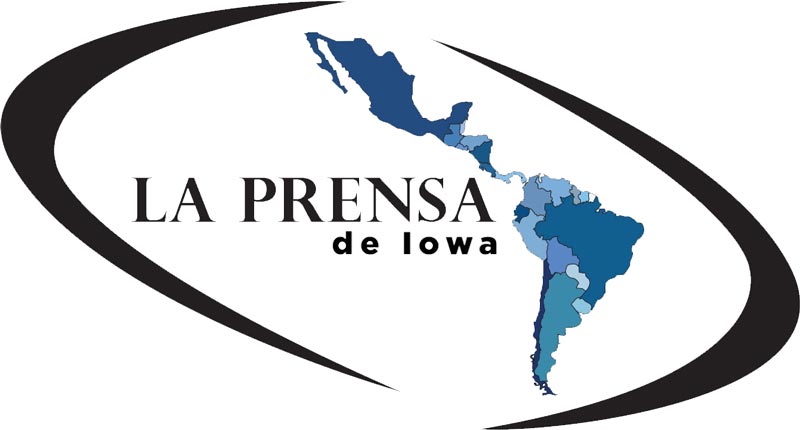¿A qué edad desaparece la capacidad de aprender un nuevo idioma como un hablante nativo?
/⇣ English translation provided at the end ⇣
Redacción
LA PRENSA
En uno de los estudios de lingüística más grandes jamás realizados, una encuesta viral en internet que atrajo a dos tercios de un millón de encuestados, investigadores de tres universidades con sede en Boston mostraron que los niños son competentes para aprender un segundo idioma hasta la edad de 18 años, aproximadamente 10 años después. que las estimaciones anteriores. Pero el estudio también demostró que lo mejor es comenzar a los 10 años si desea lograr la fluidez gramatical de un hablante nativo.
Para analizar este problema, el equipo de investigación, que incluía al psicólogo Steven Pinker de la Universidad de Harvard, recopiló datos sobre la edad actual de una persona, el dominio del idioma y el tiempo de estudio del inglés. Los investigadores calcularon que necesitaban más de medio millón de personas para hacer una estimación justa de cuándo termina el "período crítico" para alcanzar los niveles más altos de fluidez gramatical. Entonces recurrieron al mayor grupo de temas experimentales del mundo: Internet.
Crearon un breve cuestionario de gramática en línea llamado ¿Qué inglés? que probó concordancia entre sustantivo y verbo, pronombres, preposiciones y cláusulas relativas, entre otros elementos lingüísticos. A partir de las respuestas, un algoritmo predijo el idioma nativo del evaluador y qué dialecto del inglés (es decir, canadiense, irlandés, australiano) hablaban. Por ejemplo, algunas de las preguntas incluían frases que un chicago consideraría gramaticalmente incorrectas, pero un Manitoban pensaría que es un inglés perfectamente aceptable.
Los investigadores obtuvieron una gran respuesta al proporcionar a los encuestados "algo que es intrínsecamente gratificante", dice Joshua Hartshorne, profesor asistente de psicología Boston College, quien dirigió el estudio mientras era un postdoctorado en el Instituto de Tecnología de Massachusetts. El pequeño regalo para los encuestados fue una conjetura sobre sus antecedentes. Según Hartshorne: "Si se da cuenta correctamente de que eres de hecho un estadounidense de origen alemán, la gente dice: '¡Dios mío, la ciencia es increíble!' Y cuando está mal, dicen: 'Ja, ja, robot estúpido "De cualquier manera, es entretenido e interesante y es algo en lo que pueden pensar y hablar con sus amigos".
La táctica de Hartshorne funcionó. En su apogeo, la prueba que atrajo 100,000 visitas al día. Se compartió 300,000 veces en Facebook, apareció en la portada de Reddit y se convirtió en un tema de tendencia en 4chan, donde se produjo una discusión reflexiva sobre cómo el algoritmo podría determinar el dialecto a partir de las preguntas de gramática. El estudio trajo a hablantes nativos de 38 idiomas diferentes, incluido el uno por ciento de la población de Finlandia.
Sobre la base de los puntajes de gramática de las personas y la información sobre su aprendizaje del inglés, los investigadores desarrollaron modelos que predecían cuánto tiempo se tarda en hablar un idioma con fluidez y la mejor edad para comenzar a aprender. Llegaron a la conclusión de que la capacidad de aprender un nuevo idioma, al menos gramaticalmente, es más fuerte hasta la edad de 18 años, después de lo cual hay una disminución precipitada. Sin embargo, para adquirir fluidez, el aprendizaje debe comenzar antes de los 10 años.
Hay tres ideas principales sobre por qué la capacidad de aprendizaje de idiomas disminuye a los 18 años: los cambios sociales, la interferencia del idioma principal y el desarrollo continuo del cerebro. A los 18 años, los niños generalmente se gradúan de la escuela secundaria y comienzan la universidad o ingresan a la fuerza laboral a tiempo completo. Una vez que lo hacen, es posible que ya no tengan el tiempo, la oportunidad o el entorno de aprendizaje para estudiar un segundo idioma como lo hicieron cuando eran más jóvenes. Alternativamente, es posible que después de que uno domine un primer idioma, sus reglas interfieran con la capacidad de aprender un segundo. Finalmente, los cambios en el cerebro que continúan a fines de la adolescencia y principios de los 20 años pueden dificultar el aprendizaje de alguna manera.
Esto no quiere decir que no podamos aprender un nuevo idioma si tenemos más de 20 años. Existen numerosos ejemplos de personas que aprenden un idioma más adelante en la vida, y nuestra capacidad para aprender nuevo vocabulario parece permanecer constante, pero la mayoría de nosotros lo haremos sin dominar la gramática como un hablante nativo, o probablemente tampoco suene como uno. Al ser un cuestionario escrito, el estudio no pudo evaluar el acento, pero una investigación previa coloca el período crítico para los sonidos del habla incluso antes.
Aunque el estudio se realizó solo en inglés, los investigadores creen que los hallazgos se transferirán a otros idiomas, y actualmente están desarrollando pruebas similares para español y mandarín.
Quizás aún más importante que cuando uno aprende un idioma es cómo. Las personas que aprendieron por inmersión (viviendo en un país de habla inglesa más del 90 por ciento de las veces) fueron significativamente más fluidas que las que aprendieron en una clase. Hartshorne dice que si tiene la opción de comenzar las lecciones de idiomas antes o aprender a través de la inmersión más tarde, “aprendería en un entorno de inmersión. La inmersión tiene un efecto enorme en nuestros datos, incluso en relación con diferencias bastante grandes en la edad ".
En lo que podría ser la conclusión más sorprendente, los investigadores dicen que incluso entre hablantes nativos se necesitan 30 años para dominar completamente un idioma. El estudio mostró una ligera mejoría, aproximadamente un punto porcentual, en personas que han estado hablando inglés durante 30 años versus 20 años. El hallazgo es consistente tanto para hablantes nativos como no nativos.
Google Translation
At what age does the ability to learn a new language disappear as a native speaker?
Editorial
LA PRENSA
In one of the largest linguistics studies ever conducted, a viral internet survey that attracted two-thirds of a million respondents, researchers at three Boston-based universities showed that children are competent to learn a second language until age 18 years, approximately 10 years later. than previous estimates. But the study also showed that it's best to start at age 10 if you want to achieve grammatical fluency from a native speaker.
To analyze this problem, the research team, which included psychologist Steven Pinker from Harvard University, collected data on a person's current age, language proficiency, and English study time. The researchers calculated that they needed more than half a million people to make a fair estimate of when the "critical period" ends to reach the highest levels of grammatical fluency. They then turned to the largest group of experimental subjects in the world: the Internet.
They created a short online grammar quiz called What English? that proved agreement between noun and verb, pronouns, prepositions and relative clauses, among other linguistic elements. From the responses, an algorithm predicted the evaluator's native language and which dialect of English (i.e. Canadian, Irish, Australian) they spoke. For example, some of the questions included phrases that a Chicago would consider grammatically incorrect, but a Manitoban would think that it is perfectly acceptable English.
The researchers had a great response by providing respondents "with something that is inherently gratifying," says Joshua Hartshorne, an assistant professor of psychology at Boston College, who led the study while a postdoctoral fellow at the Massachusetts Institute of Technology. The small gift for respondents was a guess about their background. According to Hartshorne: "If he correctly realizes that you are indeed an American of German descent, people say, 'OMG, the science is amazing!' And when it's wrong, they say, 'Ha ha, stupid robot. "Either way, it's entertaining and interesting and it's something they can think about and talk to their friends."
Hartshorne's tactic worked. At its peak, the test drew 100,000 visits a day. It was shared 300,000 times on Facebook, featured on the cover of Reddit, and became a trending topic on 4chan, where a thoughtful discussion ensued on how the algorithm could determine dialect from grammar questions. The study brought in native speakers of 38 different languages, including one percent of the Finnish population.
Based on people's grammar scores and information about their English learning, the researchers developed models that predicted how long it takes to speak a language fluently and the best age to start learning. They concluded that the ability to learn a new language, at least grammatically, is strongest until the age of 18, after which there is a precipitous decline. However, to become fluent, learning must begin before age 10.
There are three main ideas as to why language learning ability declines at age 18: social change, interference from the primary language, and continued brain development. At age 18, children generally graduate from high school and start college or enter the workforce full time. Once they do, they may no longer have the time, opportunity, or learning environment to study a second language as they did when they were younger. Alternatively, after one has mastered a first language, its rules may interfere with the ability to learn a second. Finally, changes in the brain that continue into late teens and early 20s can make learning somewhat difficult.
This does not mean that we cannot learn a new language if we are over 20 years old. There are numerous examples of people learning a language later in life, and our ability to learn new vocabulary seems to remain constant, but most of us will do so without mastering grammar as a native speaker, or probably not sounding like one either. Being a written questionnaire, the study was unable to assess accent, but previous research places the critical period for speech sounds even earlier.
Although the study was conducted in English only, the researchers believe the findings will carry over to other languages, and they are currently developing similar tests for Spanish and Mandarin.
Perhaps even more important than when one learns a language is how. People who learned by immersion (living in an English-speaking country more than 90 percent of the time) were significantly more fluent than those who learned in one class. Hartshorne says that if you have the option of starting language lessons earlier or learning through immersion later, “you would learn in an immersive environment. Immersion has a huge effect on our data, even in relation to quite large differences in age. "
In what could be the most surprising conclusion, the researchers say that even among native speakers it takes 30 years to fully master a language. The study showed a slight improvement, roughly one percentage point, in people who have been speaking English for 30 years versus 20 years. The finding is consistent for both native and non-native speakers.






































